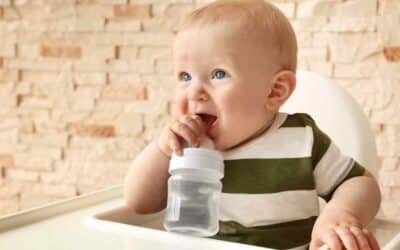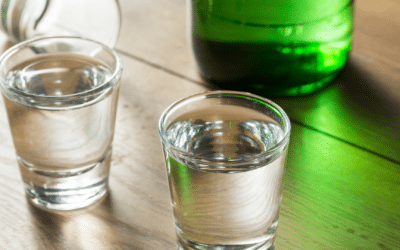Water is essential for the healthy growth and development of infants, making it crucial for parents to ensure that the water their baby consumes is free from harmful contaminants.
Distilled water, a popular choice for babies, goes through a purification process that removes impurities, making it safe for consumption. However, is purified water a suitable alternative?
This blog will provide an overview of purified water, comparing its safety, benefits, and drawbacks to distilled water for babies.
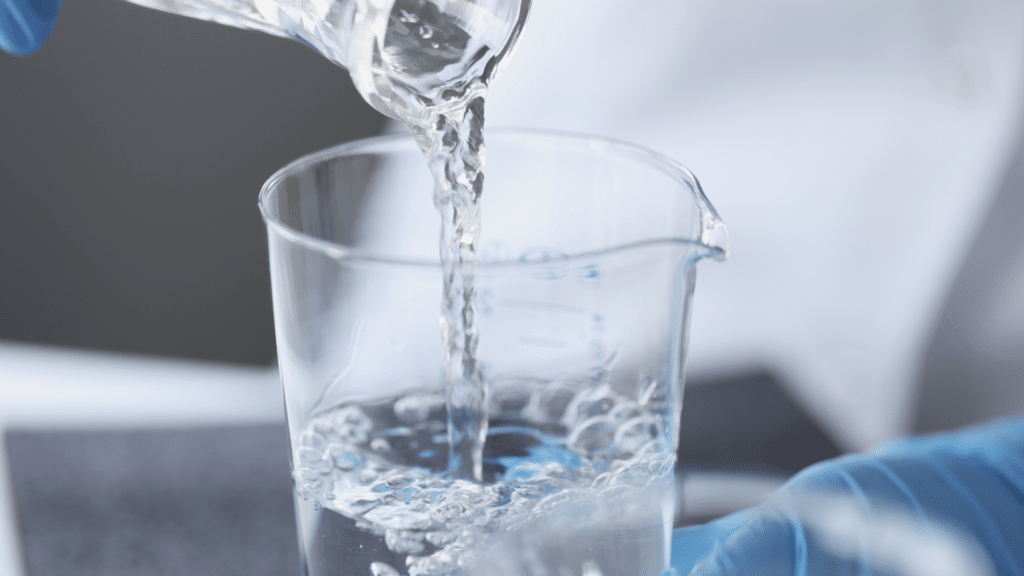
What is Purified Water?
Purified water refers to water that has gone through a series of purification processes to remove contaminants and impurities, such as bacteria, algae, fungi, viruses, minerals, and pollutants. This type of water is often used for drinking, cooking, and other numerous purposes. It is needed especially where clean and contaminant-free water is required. Purified water for baby formula is an excellent example where clean, safe water has significant importance.
Besides being used generally, purified water also takes the form of purified bottled water, providing an easy and accessible solution for individuals in need of clean and safe drinking water.
The purification process generally involves multiple stages to ensure that water is free from impurities and safe for consumption. Typically, these stages involve a combination of physical, chemical, and biological processes to remove contaminants.
Different Purification Methods
There are several different purification methods used in various industries and scientific fields to separate and purify substances. Here are some common purification methods:
- Reverse Osmosis (RO): Reverse osmosis is a water purification method that involves forcing water through a semi-permeable membrane, which filters out contaminants based on their molecular size and charge. This process effectively removes particles, bacteria, viruses, heavy metals, and more, resulting in clean, purified water.
- Carbon Filtration: Carbon filtration uses activated carbon to remove contaminants from water through a process called adsorption. As water passes through the carbon filter, impurities such as volatile organic compounds (VOCs), chlorine, and other contaminants are trapped by the carbon’s porous surface, leaving clean water to flow out of the filter.
- Ultraviolet (UV) Disinfection: UV disinfection utilizes ultraviolet light to kill microorganisms such as bacteria, viruses, and parasites in water. As water passes through a UV disinfection unit, it’s exposed to UV light, which damages the DNA of microorganisms, rendering them unable to reproduce and thus effectively killing them.
- Distillation: Distillation is the process of boiling water and collecting the purified water vapor, which then condenses back into a liquid form. This method effectively removes impurities such as salts, heavy metals, and other non-volatile contaminants, but it may not be as effective against some volatile organic compounds (VOCs) and gases.
- Ion Exchange: Ion exchange is a water purification method that uses a specialized resin to replace unwanted ions, such as heavy metals and nitrates, with more desirable ions like sodium or potassium. This process is often used alongside other purification methods to improve overall water quality.
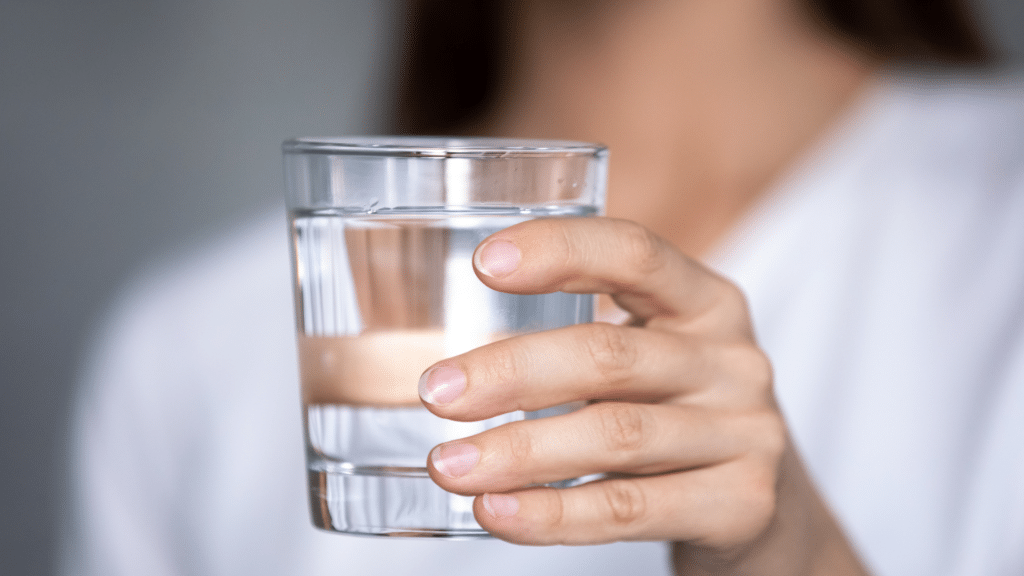
Distilled Water for Babies
Distillation is a water purification method that involves heating water until it turns into steam and then collecting the purified vapor. As the water evaporates, impurities such as salts, heavy metals, and other non-volatile contaminants are left behind in the boiling chamber. The purified steam then condenses back into liquid water, which can be collected and used. This process results in bottled distilled water which can be used as safe drinking water for infants.
Benefits of Using Distilled Water for Infants
- Removal of Contaminants: Distilled water is free from impurities like bacteria, viruses, heavy metals, and chemical contaminants, which can be harmful to an infant’s developing immune system.
- Reduced Risk of Waterborne Illnesses: Since distilled water has gone through an extensive purification process, it considerably minimizes the chances of waterborne illnesses.
- Mixing with Infant Formula: Distilled water is especially beneficial when you prepare infant formula, as it helps to ensure that the baby does not consume any potentially harmful substances through the water.
- Safe for Sensitive Skin: Distilled water can be used for bathing infants as it is softer on their delicate skin and reduces the risk of skin irritation from water impurities.
Using bottled distilled water for infants ensures they receive clean and safe drinking water throughout their early stages of development.
Purified Water for Babies: Safety and Benefits
Purified water is often recommended for babies, particularly for making baby formula or diluting juices. Here are some safety considerations and benefits of using purified water for babies:
Assessing the Purification Methods for Baby Safety
When choosing purified water for babies, it is essential to assess the purification method used to ensure the water is safe and free from harmful contaminants. Reverse osmosis, carbon filtration, UV disinfection, and distillation all effectively remove contaminants. Understanding the purification method used and the contaminants it eliminates is crucial in determining the safety of the water.
Removal of Contaminants and Impurities
Purified water has gone through a rigorous purification process to remove contaminants such as bacteria, viruses, heavy metals, chemicals, and particulates. This ensures the water is clean and safe for consumption, reducing the risk of waterborne illnesses and other health concerns for infants.
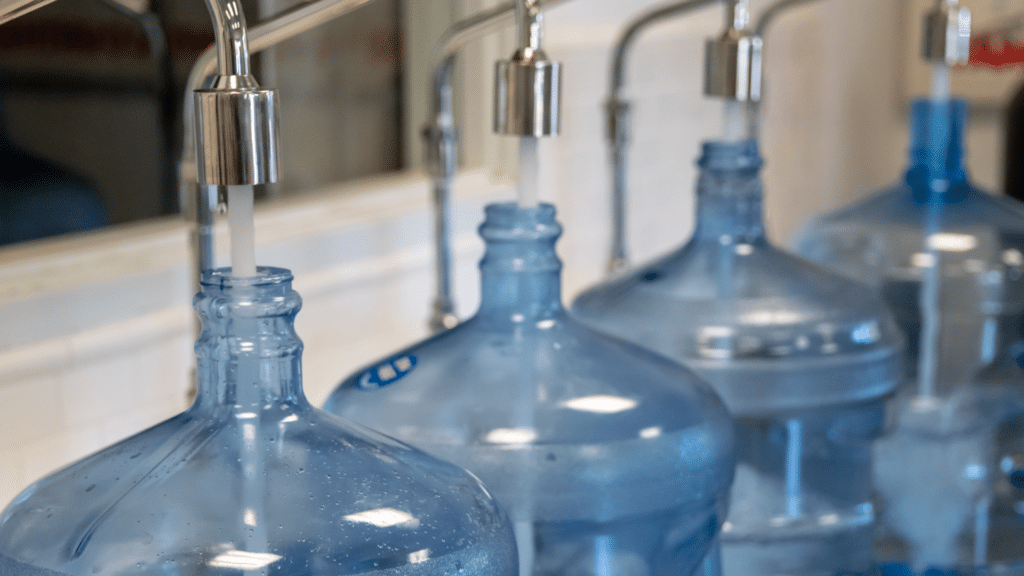
Potential Advantages of Purified Water over Distilled Water
Purified water and distilled water are both types of purified water, but they are produced through different methods. While both types of water can be suitable for various purposes, such as nursery water or baby formula, purified water may offer some advantages over distilled water in certain situations. Here are a few potential advantages of purified water over distilled water:
Taste and Mineral Content
Purified water, depending on the method used, may retain some essential minerals like calcium, magnesium, and fluoride that are lacking in distilled water. These minerals contribute to the taste and nutritional value of the water. For infants, mineral content and taste may not be a significant concern; however, it is an added benefit of purified water when weighed against distilled water.
Affordability and Availability
Some purified water systems, like reverse osmosis or carbon filtration, can be more cost-effective and readily available than distilled water. Additionally, many households may have in-home water filtration systems that use proven purification methods to provide clean, purified water on demand.
When considering whether to use distilled or purified water for your baby’s needs, it is essential to evaluate the advantages and understand the purification methods. This knowledge will help you make the best choice in ensuring the safety, health, and well-being of your infant.
Comparing Purified Water to Distilled Water for Babies
Both purified and distilled water have their benefits for infants. When making a choice, consider the following:
- Safety: Ensure the purification method used effectively removes contaminants and impurities, making the water safe for consumption. Be mindful of the fluoride content, as too much fluoride can pose health risks.
- Taste and Mineral Content: Purified water may have a more natural taste and retain some essential minerals, depending on the purification method. You can also find low fluoride bottled water to ensure safe consumption.
- Affordability and Availability: Purified water, especially if using an in-home filtration system, can be more affordable and readily available than distilled water.
Purified water is a viable alternative to distilled water for babies, provided that the purification method used guarantees the removal of contaminants. Comparing both options in terms of safety, taste, mineral content, and availability will help you make an informed decision about the best water source for your infant.

Key Considerations When Choosing Water for Babies
When selecting water for babies, it’s crucial to ensure that the water meets quality standards and safety guidelines set by relevant health authorities, such as the Environmental Protection Agency (EPA) or the World Health Organization (WHO). This ensures that the water is free from harmful contaminants and is safe for consumption or use by infants.
Remember that every baby is unique, and individual needs may vary. As a result, it is essential to consult with your pediatrician for personalized recommendations about the best water choices for your child. This can help ensure that you are providing water that meets the specific needs of your infant, whether it’s in preparing infant formula, for drinking, or for bathing.
Proper Handling and Storage of Water for Infant Use
To maintain the quality and safety of water for infant consumption or use, proper handling and storage practices are necessary. Here are some tips to follow:
- Store water in a clean and suitable container: Use clean, BPA-free containers specifically designed for water storage. Ensure the container is non-reactive and tightly sealed to prevent contamination.
- Store water in a cool, dark place: Exposure to sunlight, high temperatures, or fluctuating temperatures can affect the quality of water. Store your water containers in a cool, dark place to ensure the water remains free from contamination and maintains its quality.
- Regularly check the quality: Be vigilant in assessing the quality of stored water. If the water appears discolored, has an unusual smell, or you suspect contamination, discard the water and find a new source.
- Follow the expiration dates: If you purchase commercially prepared bottled water, be mindful of the expiration dates. Expired water can harbor contaminants and may no longer be safe for consumption or use.
- Boil tap water when necessary: If you have concerns about the quality of tap water or well water, consider boiling it for at least one minute to eliminate bacteria and other microorganisms. Remember to cool the water to an appropriate temperature before using it for your baby. Cold tap water, if fluoridated, might require boiling, depending on your baby’s specific needs.
By considering these factors and consulting with your pediatrician, you can choose the safest and most suitable water option for your infant.
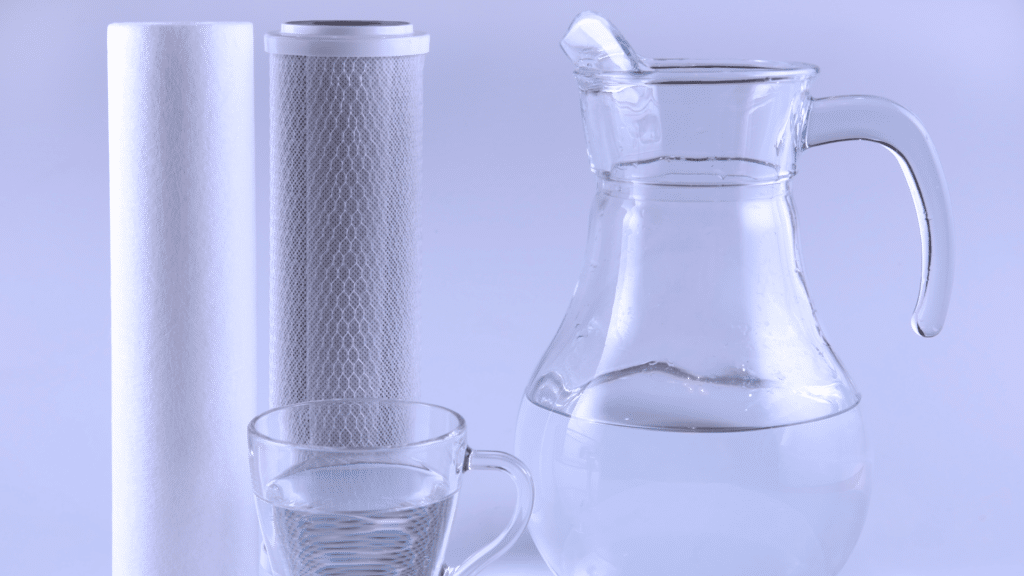
Comparing Purified Water with Other Alternatives
When comparing purified water with other alternatives, several factors come into play, including the source of water, the purification method used, taste, cost, and environmental impact. Let’s compare purified water with a few common alternatives:
Purified Water
Purified water undergoes various purification processes such as reverse osmosis, carbon filtration, UV disinfection, or distillation to remove impurities and contaminants. This ensures that the water is free from bacteria, viruses, heavy metals, and chemicals, making it safe for consumption.
Bottled Water
Bottled water is water that comes in a sealed plastic or glass bottle. The quality and source of bottled water can vary, as it may be sourced from fluoridated tap water, spring water, or groundwater. Some bottled water may go through additional purification processes to improve taste and remove contaminants.
Comparison with Purified Water
- The quality and safety of bottled water can depend on the brand and source.
- Bottled water can be more expensive and less environmentally friendly than purified water, especially in the long run.
- It’s important to check the label to understand the source and treatment process of bottled water.
Filtered Water
Filtered water undergoes various filtration processes to remove impurities and contaminants from tap water or well water. Common filtration methods include activated carbon, ceramic, and ion exchange filters.
Comparison with Purified Water
- Filtered water may not remove as many contaminants as purified water, depending on the filter type.
- In-home filtration systems can make filtered water affordable and readily available.
- Regular maintenance is required for filtration systems to be effective.
Spring Water
Spring water comes from underground sources and usually contains natural minerals. It is collected directly from a spring or a borehole tapping the underground formation. Spring water undergoes treatment to meet safety standards, but it may retain its mineral content.
Comparison with Purified Water
- Spring water generally has a higher mineral content than purified water.
- The taste of spring water may be preferred due to the presence of minerals.
- Spring water is less processed than purified water, but the quality can vary based on location and source.
Boiled Tap Water
Boiled tap water involves heating tap water to a rolling boil, typically for at least one minute, to kill bacteria, viruses, and other microorganisms. While boiling can eliminate biological contaminants, it doesn’t remove chemical contaminants or heavy metals.
Comparison with Purified Water
- Boiled tap water is less effective in removing chemical contaminants and heavy metals than purified water.
- Boiling water is a simple and low-cost solution, especially in emergency situations.
- It can be a temporary solution when other safer alternatives are not available.
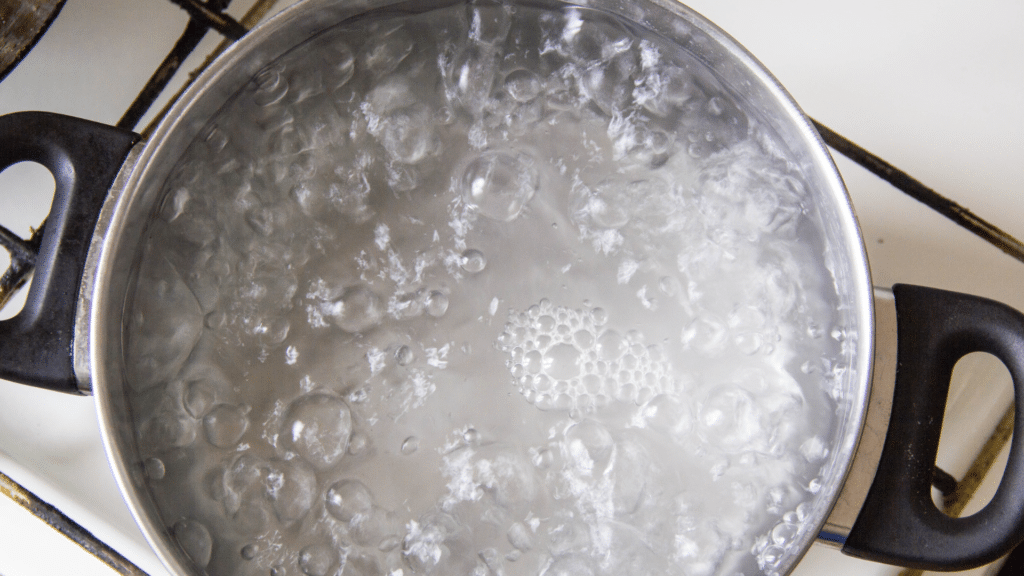
Conclusion
In conclusion, purified water is a safe and viable alternative to distilled water for babies, provided that it has gone through a stringent purification process to remove contaminants.
When choosing the best water source for your baby, consider factors such as safety, taste, mineral content, availability, and cost.
It’s essential to consult with your pediatrician for personalized recommendations and adhere to proper handling and storage practices to ensure your baby’s safety and well-being.
Additionally, comparing purified water with other alternatives, such as bottled water, filtered water, spring water, and boiled tap water, can help you make informed decisions based on the benefits and drawbacks of each option.
Ultimately, the key is to prioritize the health and safety of your child by providing clean, contaminant-free water for their consumption and use.
Did this article help you? If so, please leave a comment below.

